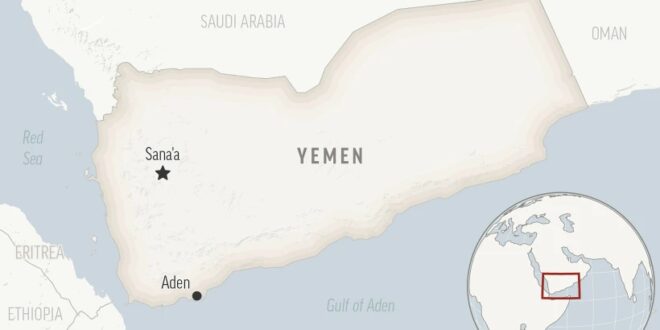A suspected al-Qaida attack in southern Yemen on Thursday killed a military commander and three soldiers from a secessionist group, according to the group’s leader, security officials, and an eyewitness.
Commander Abd al-Latif al-Sayyid and the three soldiers from the Security Belt Forces, a fighting group loyal to Yemen’s secessionist Southern Transitional Council, were killed in an explosion while traveling in a convoy through southern Abyan province, three security officials and the witness said.
They blamed al-Qaida’s branch in Yemen — known as al-Qaida in the Arabian Peninsula — for the attack but provided no further details. All spoke on condition of anonymity because they were not authorized to talk to the media.
In a obituary statement issued late Thursday by the head of the secessionist council, Aydarous al-Zubaidi said the separatist force was mourning the loss of al-Sayyid and the three fighters “who were touched by the hands of treachery and terrorism.”
The Southern Transitional Council is backed by the United Arab Emirates and controls most of Yemen’s south. It is at odds with the internationally recognized government, and has repeatedly called for the south Arabian country to be split into two states, as it was between 1967 and 1990.
Al-Qaida did not immediately claim responsibility for Thursday’s attack but the militant group is active in Abyan province and regularly carries out ambushes against Yemeni forces. Al-Qaida’s branch in Yemen is seen as one of the more dangerous branches of the terror network.
Earlier this month, security officials told The Associated Press that al-Qaida militants killed five troops from the Southern Armed Forces, a large force loyal to the Southern Transitional Council. And last month, suspected al-Qaida militants clashed with forces of the secessionist council in the province of Shabwa. At least two troops and one militant were killed.
Yemen’s ruinous civil war began in 2014 when the Iran-backed Houthi rebels seized the capital of Sanaa and much of northern Yemen and forced the government into exile. A Saudi-led coalition, including the UAE, intervened the following year to try to restore the internationally recognized government to power.
Al-Qaida has since exploited Yemen’s conflict to cement its presence in the impoverished nation.
 Eurasia Press & News
Eurasia Press & News



